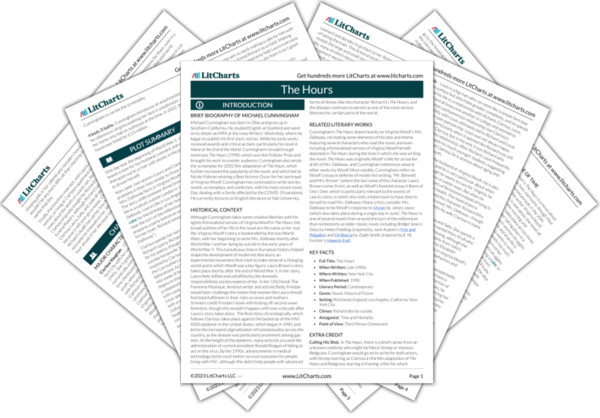Richard’s comment here about how he never had the chance to write about Clarissa may be a sign of his declining mental condition due to illness, since, in fact, many other characters believe that Richard’s one novel he wrote is
all about Clarissa—though this comment might also indicate that his novel wasn’t actually about Clarissa, or at least that he didn’t consciously
intend to write it about her. Clarissa’s inability to kiss Richard on the lips recalls her interaction with Walter. Here, it symbolizes how Richard’s illness has now made it impossible for him and Clarissa to have a relationship.
